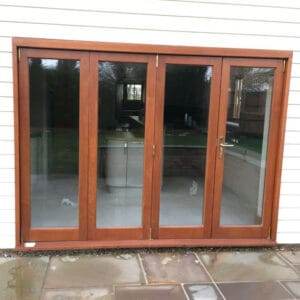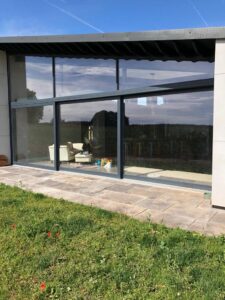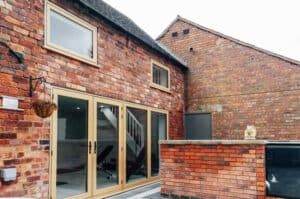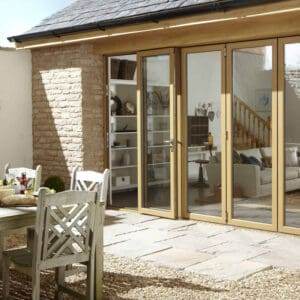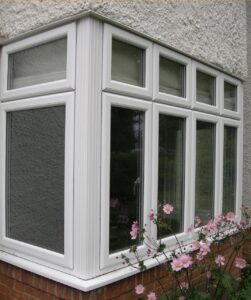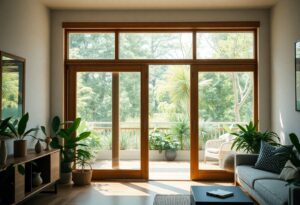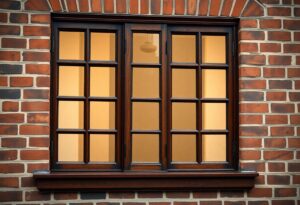Most homeowners desire a peaceful environment, and soundproof windows can significantly enhance your comfort by reducing intrusive noise from outside. When considering installation, you should expect a comprehensive assessment of your existing windows and the option for various materials that can improve acoustic insulation. The installation process may involve some disruption, but the long-term benefits—including increased property value and energy efficiency—make it worthwhile. This guide will walk you through what to anticipate before, during, and after your soundproof window installation.
Types of Soundproof Windows
While exploring the various types of soundproof windows available, you will find that each option has unique features and benefits to suit your needs. Key options include:
| Double Glazing | Two panes of glass with an air gap that reduces noise and heat transfer. |
| Triple Glazing | Three panes of glass which offer enhanced insulation and soundproofing. |
| Laminated Glass | Composite material that dampens sound waves and adds safety. |
| Acoustic Windows | Designed specifically to minimise noise pollution with specialised materials. |
| Secondary Glazing | Additional window installed on the inside to reduce external noise. |
After considering your specific soundproofing needs, you can select the most suitable option for your home.
Double and Triple Glazing
The differences between double and triple glazed windows primarily lie in their construction and efficacy. Double glazing consists of two panes of glass separated by an air gap, effectively reducing noise infiltration. Triple glazing, on the other hand, features three panes, enhancing soundproofing and thermal insulation. This additional layer can make a significant difference, especially in noisy environments, allowing you to enjoy a quieter living space.
Laminated Glass
For soundproof windows, laminated glass offers significant advantages due to its unique construction. The combination of two or more glass layers with a sound-dampening interlayer effectively reduces noise infiltration while enhancing security. This type of glass is highly beneficial for those living in bustling urban areas or near busy roads, providing both peace and protection.
Hence, laminated glass is an excellent choice for noise reduction, as it not only dampens sound waves but also enhances the security of your windows. In addition to reducing disturbances from the outside world, it prevents shattering, adding a layer of safety to your home. Investing in laminated glass can lead to a more peaceful living environment without compromising on durability or safety.
Preparing for Installation
Even the best soundproof windows will not deliver their full potential if proper preparations are not made beforehand. You need to ensure your home is ready for the installation process, which includes clearing the area around the windows and assessing any potential challenges that may arise during installation. It is advisable to discuss your specific requirements with your contractor to guarantee a smooth and efficient installation experience.
Measuring Your Windows
By taking accurate measurements of your windows, you can ensure that your soundproof installations fit perfectly. Begin by measuring the width and height of each window frame at three different points: top, middle, and bottom for width, and left, centre, and right for height. Use a tape measure, and record your findings, as this will help you and your contractor determine the right size for your custom soundproof windows.
Choosing the Right Contractor
With the right contractor, your soundproof windows installation can be a seamless experience that yields excellent results. It’s vital to select a qualified professional who is experienced in soundproofing projects. Look for credentials such as relevant certifications, positive customer reviews, and a portfolio of completed installations to ensure you are making an informed choice.
Even when you find a contractor with impressive credentials, it’s important to conduct thorough research. Look for licensing and insurance to protect yourself from potential mishaps during the installation process. Gather multiple quotes to compare not just pricing but also services offered. A reputable contractor will be transparent about their methods, use quality materials, and provide warranties on their work. Taking the time to choose wisely will lead to a successful installation and increased comfort in your home.
Installation Process Overview
One of the first things you should consider is the installation process for soundproof windows. This involves a series of steps designed to ensure that your new windows provide optimal sound insulation. Typically, the installation can take anywhere from a few hours to a full day, depending on the size and complexity of the project. (Ensuring you choose a reputable installer can significantly impact the quality of the installation.)
Step-by-Step Installation
Behind each successful installation lies a systematic approach. The process generally includes an initial assessment, careful measurement, removal of old windows, preparation of the new frame, installation of the new windows, and final adjustments. This structured procedure helps to ensure that everything fits properly and performs well. Below is a breakdown of the stages:
Installation Steps
| Stage | What to Expect |
| Assessment | A professional will evaluate your current windows. |
| Measurements | Accurate measurements are taken for your new windows. |
| Old Window Removal | Carefully removing existing windows without damaging surrounding areas. |
| New Frame Preparation | Ensuring the new window frame is ready for installation. |
| Window Installation | Fitting the new windows securely into place. |
| Final Adjustments | Making sure everything is sealed and functioning as intended. |
Common Challenges and Solutions
One potential issue during the installation of soundproof windows is encountering structural obstacles such as old frames or limited space. Fortunately, these challenges can be managed by hiring experienced professionals who are equipped to make necessary adjustments or modifications. (Assessing your home’s compatibility with soundproof windows beforehand can prevent surprises during installation.)
Challenges such as unexpected weather variations can also impede progress, so planning ahead is advisable. Keeping an open line of communication with your installer is important to tackle any problems promptly. Having a flexible schedule may also help. (Thorough preparation and flexibility are key to a successful installation.)
Challenges in installation can range from structural limitations to unexpected weather conditions. However, being well-prepared and choosing the right installer can help you overcome these hurdles. It’s important to think about timeline expectations and how potential complications could affect your project. Adopting a proactive approach makes it easier to minimise disruptions during your soundproof window installation.
Post-Installation Adjustments
Despite the initial satisfaction with your new soundproof windows, making What Are Soundproof Windows & How Do They Work? adjustments after installation is key for optimal performance. This may involve checking seals, ensuring insulation is adequate, and making any necessary tweaks to enhance sound resistance. Your windows’ effectiveness greatly depends on these final adjustments.
Sealing and Insulation
The sealing and insulation surrounding your soundproof windows are vital in maximising their performance. After installation, inspect all edges and corners for gaps, as these can undermine the soundproofing effect. Properly maintaining these areas will ensure that external noise is minimised, whilst promoting energy efficiency within your home.
Maintenance Tips
Tips for maintaining your soundproof windows include regular inspections and cleaning to prevent issues over time. Ensure you:
- Keep the seals free of debris
- Inspect insulation annually
- Use a gentle cleaner for the glass
This will all contribute to the longevity and optimal performance of your soundproofing.
For instance, regularly checking the seals can prevent air leaks that compromise soundproofing effectiveness. You might also consider using a soft cloth and mild detergent to clean the glass, avoiding harsh chemicals that could damage the seals. Additionally, keeping the surrounding areas clear of obstructions ensures efficient airflow and maintains your windows’ lifespan. This way, your investment in soundproof windows continues to pay off.
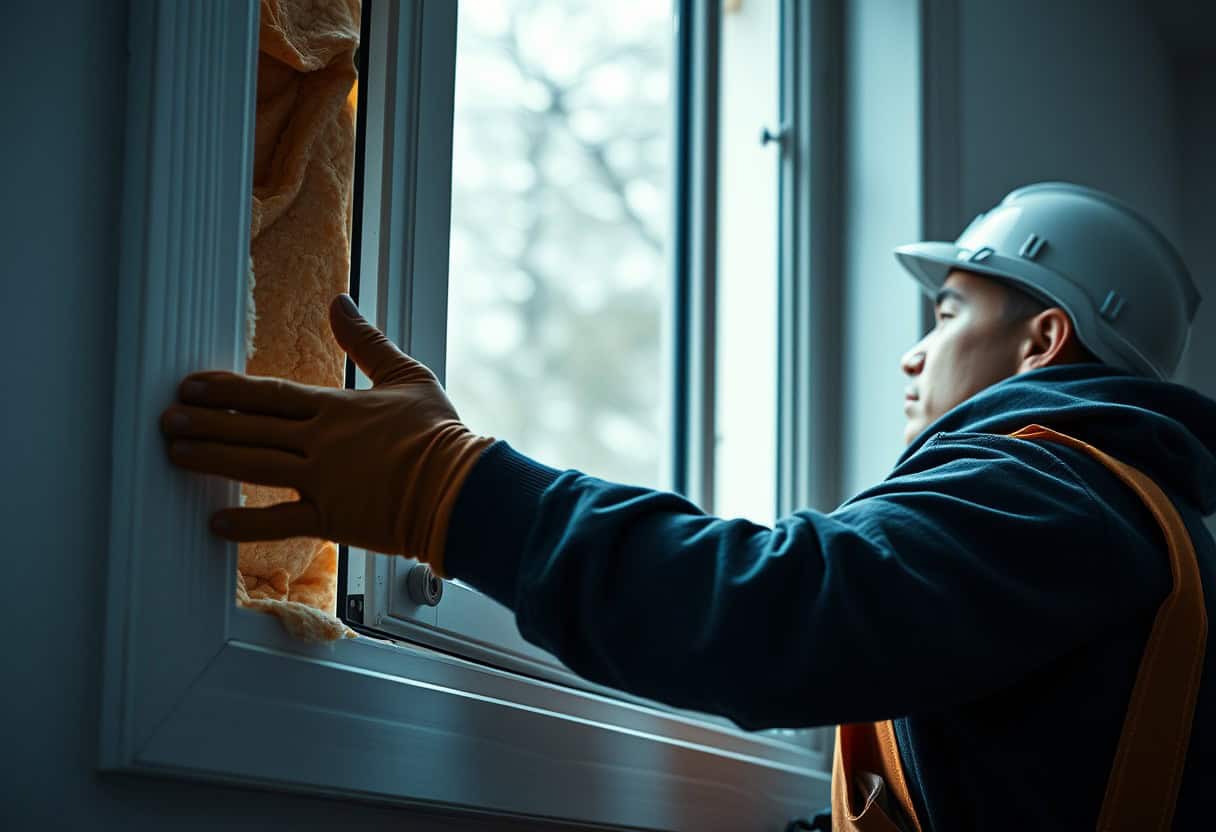
Cost Considerations
Your investment in soundproof window installation involves several cost factors, such as materials, labour, and any additional expenses like permits or adjustments. Custom-sized windows or specialised soundproofing materials can add to the initial outlay but are crucial for achieving effective results. Understanding these financial aspects can help you make informed decisions and ensure your project aligns with your budget.
Budgeting for Installation
Along with materials and labour, factors you should consider include the type of installation and the size and location of your windows. Additionally, any potential renovation work may influence the overall cost. Creating a detailed budget will help you avoid unexpected expenses and give you a clear picture of your financial commitment.
Long-Term Savings
To maximise your investment, consider the potential long-term savings on your energy bills resulting from improved insulation. By installing soundproof windows, you can not only reduce noise pollution but also enhance your property’s value, making it more appealing to potential buyers. (Invest wisely in your home’s future by prioritising soundproofing).
To further solidify the financial benefits, you should be aware that soundproof windows can significantly reduce the amount spent on heating and cooling. This is due to their insulative properties, which help maintain a steady indoor temperature, lowering your energy consumption and costs over time. (The right choices now can lead to substantial savings later).
Budgeting for this project involves understanding the impact of quality materials and expert installation, which can lead to exceptional outcomes. It’s vital to account for the long-term return on investment, as well as immediate costs, ensuring your financial planning accommodates both aspects without jeopardising your budget.
Summing up
Presently, you can expect a transformative experience with soundproof window installation, significantly reducing noise disturbances in your living space. The process typically involves a thorough assessment of your existing windows, followed by the installation of specialised soundproofing materials tailored to your needs. This improvement not only enhances your comfort but can also increase your property’s value. For further insights, you may wish to explore What You Should Know About Soundproofing Windows to better understand the benefits and options available to you.
FAQ
Q: What are soundproof windows and how do they work?
A: Soundproof windows are designed to significantly reduce noise from outside by using multiple panes of glass, a space filled with gas, and tightly sealed frames. The combination of these elements helps to block sound vibrations, making your indoor environment quieter and more comfortable.
Q: Why should I consider installing soundproof windows?
A: If you live in a noisy area, such as near a busy road, railway or airport, soundproof windows can greatly enhance your quality of life by reducing disruptive sounds. They also provide added benefits such as improved energy efficiency and enhanced security for your property.
Q: What should I expect during the installation process?
A: The installation process typically begins with a consultation to assess your needs and select appropriate window models. On the installation day, the existing windows are carefully removed, and the new soundproof windows are fitted into the frame. This process may take a few hours to a full day, depending on the number of windows being installed.
Q: Will I need to make any preparations before installation?
A: Yes, it is advisable to clear the area around your windows, removing any furniture or items that could obstruct the installers. Additionally, securing pets in a quiet area can help make the process smoother. The installation team will take care of any necessary sealing and adjustments.
Q: How long does it take to install soundproof windows?
A: The time required for installation can vary based on factors such as the number of windows and the complexity of the installation. Generally, it can take anywhere from a few hours to a complete day. Your installation team will provide a more precise estimate during your consultation.
Q: Will soundproof windows change the appearance of my home?
A: Soundproof windows come in various styles and designs, so you can choose options that complement your existing architecture. While some changes may be noticeable, many modern soundproof windows are designed to maintain or enhance the aesthetic appeal of your home.
Q: Are there any maintenance requirements after installing soundproof windows?
A: Maintaining soundproof windows is generally simple. Regular cleaning of the glass and checking for any seal deterioration is recommended. Annual inspections by a professional can ensure they continue to function effectively and remain in good condition, providing you with long-lasting sound reduction benefits.

